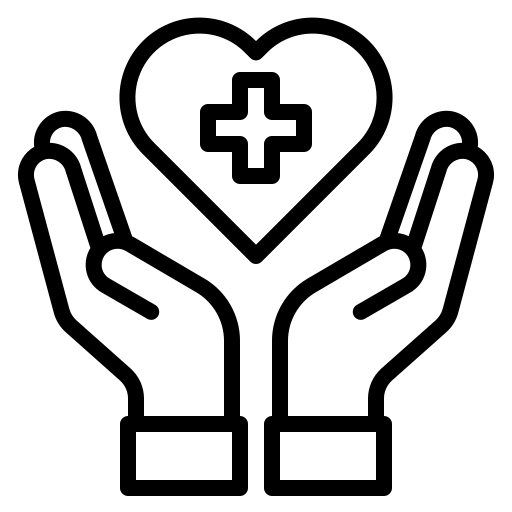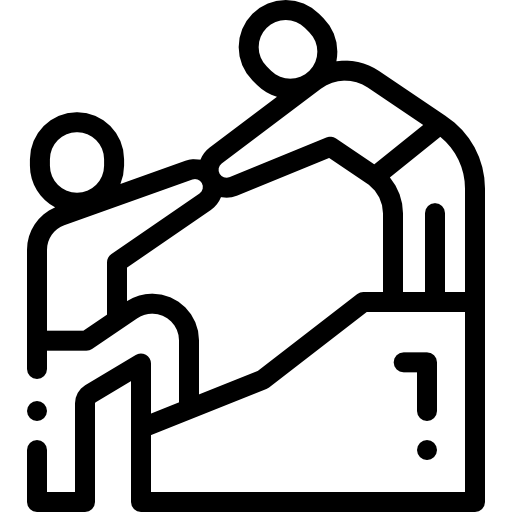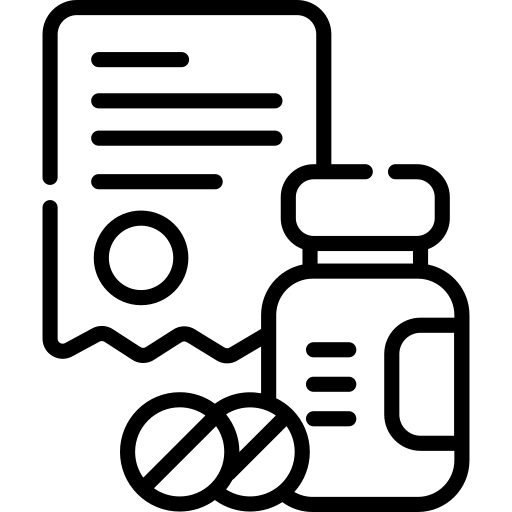|
|
Buy-up PPO In-Network |
Base PPO In-Network |
HDHP In-Network |
|
Annual deductible
|
$600 $1,200 |
$1,100 $2,200 |
$4,000 $8,000 |
|
Member Coinsurance |
20% |
20% |
0% |
|
Out-of-pocket maximum (OOP)
|
$3,500 $7,000 |
$5,000 $10,000 |
$4,000 $8,000 |
|
Preventive Care |
Covered at 100% |
Covered at 100% |
Covered at 100% |
|
Primary Care Office Visit |
$25 Copay |
$30 Copay |
Deduct. then 0% coins. |
|
Specialist Visit |
$50 Copay |
$60 Copay |
Deduct. then 0% coins. |
|
Telehealth General & Behavioral Health |
$25 Copay |
$30 Copay |
$30 |
|
Telehealth Dermatology |
$50 Copay |
$60 Copay |
Deduct. then 0% coins. |
|
Urgent care |
$50 Copay |
$60 Copay |
Deduct. then 0% coins. |
|
Emergency room |
$250 then deduct. then 20% coins. |
$250 then deduct. then 20% coins. |
Deduct. then 0% coins. |
|
Hospital services
|
Deduct. then 20% coins. |
Deduct. then 20% coins. |
Deduct. then 0% coins. |
|
Prescription Drugs |
|||
|
Retail (30 days) |
|
|
|
|
Tier 1 (Generic) |
$12 Copay |
$12 Copay |
Deduct. then 0% |
|
Tier 2 (Preferred brand) |
$35 Copay |
$35 Copay |
Deduct. then 0% |
|
Tier 3 (Non-preferred brand) |
$60 Copay |
$60 Copay |
Deduct. then 0% |
|
Tier 4 (Specialty) |
$60 Copay |
$60 Copay |
Deduct. then 0% |
|
Mail order (90 days) |
|
|
|
|
Tier 1 (Generic) |
$30 Copay |
$30 Copay |
Deduct. then 0% |
|
Tier 2 (Preferred brand) |
$87.50 Copay |
$87.50 Copay |
Deduct. then 0% |
|
Tier 3 (Non-preferred brand) |
$150 Copay |
$150 Copay |
Deduct. then 0% |
Welcome to Your Benefits
Your one stop for all benefits-related information.

News-Press & Gazette appreciates your commitment to our success.
At News-Press & Gazette, we believe that you, our employees, are our most important asset. Helping you and your families achieve and maintain good health - physical, emotional and financial - is the reason News-Press & Gazette offers you this benefits program.
We conduct a thorough evaluation of our benefits program each year to ensure that our coverage is competitively designed and priced. Throughout this entire process, our company is committed to these guiding principles:
-
Access to healthcare and to top-rated doctors, providers and networks.
-
Choice of both proven and innovative plan designs.
-
Affordability for all our employees.
-
Fairness in cost-sharing between the company and our plan participants.
-
Transparency of information so everyone can become better consumers of care.
This site is not your only resource, anytime you have questions about benefits or the enrollment process, you can contact your human resources representative. Although this site contains an overview of benefits, for complete information about the plans available to you, please see the Carrier Contacts & Resources tab.
Insurance Carrier Contacts
Did you Know?
February is Heart Health Month!
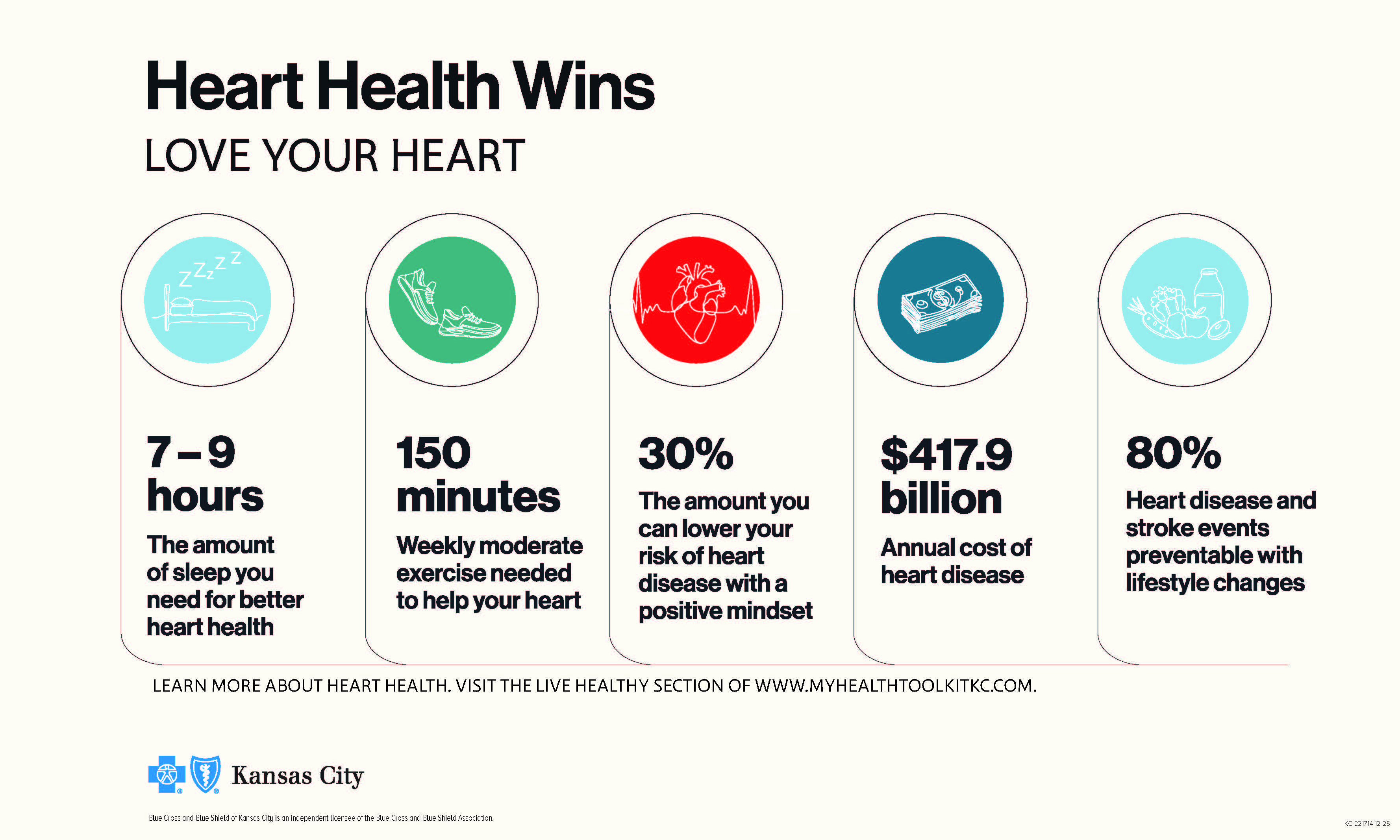
Health Plan Notice
The notice packet we provide is related to the health plan we offer and includes important information that News-Press & Gazette is required by the Department of Labor to share with you. Click HERE for the entire English packet. If you have a child eligible for Medicaid or the Children's Health Insurance Program (CHIP), click HERE for the English flyer that shows you where to go for information in your state.
Need help?
Please reach out to your local HR representative.

Eligibility & Enrollment
Your one stop for all benefits-related information.
Eligibility
Employee Eligibility
If you are in an eligible class and work 30 hours per week or more, you are eligible to enroll in benefits. For new hires or newly eligible employees, benefits begin the first of the month following 30 days of employment or 30 days following the transfer date from a regular part-time or temporary position.
Dependent Eligibility
To be eligible to enroll as a dependent, an individual must be:
-
The employee’s legal spouse.
-
The employee or legal spouse’s child. This includes:
-
A child by birth or by adoption;
-
A child under the age of 18 who has been placed with the employee for adoption for whom the employee has a legal obligation to support;
-
A child under the age of 18 who has been placed under the employee’s legal guardianship.
-
Coverage for a Dependent child under this section will apply without regard to whether such child (defined above) is: married, a tax dependent of the employee or employee’s spouse, a student, actively employed, or residing with or receiving financial support from the employee or employee’s legal spouse. All eligible children will continue to be covered by the plan until the end of the year in which they reach age 26.
Eligibility will continue past the age limit only for unmarried dependent children who cannot work to support themselves due to physical or mental handicap. The handicap must have started before the end of the Calendar Year in which the dependent reached the limiting age and the dependent must have been continuously covered by NPG’s or a prior plan at the time of reaching limiting age.

Enrolling
Benefits begin the first of the month following 30 days of employment or 30 days following the transfer date from regular part-time or temporary position.
Note: If this is your first time logging in, click New User? Get Started
ADP Registration code is: npgco-1234
Can I make changes outside open enrollment?
Once health insurance benefits are elected or waived, no changes may be made throughout the remainder of the calendar year unless you experience a qualifying life event. Enrollment changes must be made within 31 days of a qualifying life event. A qualifying life event is one or more of the following (not fully inclusive):
-
Marriage
-
Divorce or legal separation
-
Birth of child
-
Death of covered spouse or dependent
-
Adopted or foster child put in care of employee
-
Employee or dependent loss or gain of other health insurance

Termination of Coverage
If your employment is terminated you will no longer be eligible for benefits with NPG. Your coverage for each benefit will terminate as follows.
- Medical/Rx: Last day of the month in which termination of employment occurs.
- Dental: Last day of the month in which termination of employment occurs.
- Vision: Last day of the month in which termination of employment occurs.
- Basic and Voluntary Life/AD&D: Last day of employment.
- Short-Term Disability: Last day of employment.
- Long-Term Disability: Last day of employment.
Health Plan Notice
The notice packet we provide is related to the health plan we offer and includes important information that News-Press & Gazette is required by the Department of Labor to share with you. Click HERE for the entire English packet. If you have a child eligible for Medicaid or the Children's Health Insurance Program (CHIP), click HERE for the English flyer that shows you where to go for information in your state.
Need help?
Please reach out to your local HR representative.

Medical Benefits and Prescriptions
Benefits provided through Blue Cross Blue Shield of Kansas City and SmithRx.
News Press & Gazette offers three medical plans through Blue KC.
NPG will continue to offer three plans: a high-deductible health plan (HDHP), Base PPO and Buy-Up PPO. BlueKC will administer Medical benefits and SmithRx will administer Prescription Benefits. A summary of the main plan attributes is shown below.
Finding a Provider
Find the best health care options available to you through Blue KC’s My Health Toolkit website. Once you have registered for My Health Toolkit, you can search for providers via your computer or the mobile app:
-
Visit your health plan’s My Health Toolkit website OR download the app from your device’s app store
-
Above the Member Login, go to Find Care
-
Select Find a Provider and My Health Toolkit will walk you through each step
Quick Overview
Monthly Employee Contributions
|
|
Buy-up PPO |
Base PPO |
HDHP |
|
Employee Only |
$417 |
$322 |
$159 |
|
Employee + Spouse |
$964 |
$754 |
$542 |
|
Employee + Child(ren) |
$712 |
$552 |
$400 |
|
Family |
$1,063 |
$847 |
$596 |
Note: NPG will continue to offer a premium differential for those who complete the wellness program, and achieve the requirements and are tobacco-free. Go to the Wellness Tab for more information on requirements and the premium differential.
By enrolling in the medical plan, you are opting in to receive marketing text messages (e.g. program information, scheduling opportunities, etc.) from Lockton Nurse Advocate at the number provided by News-Press & Gazette Company. Msg & data rates may apply. Msg frequency varies. Unsubscribe at any time by replying STOP or clicking the unsubscribe link (where available). If you choose to unsubscribe, you are still eligible to participate in the Lockton Nurse Advocate program, and you may continue to receive email and/or mailer information.
Medical and Prescription Drug Plan Summaries and Benefit Booklets
Spousal Surcharge
- If you are enrolling your spouse in NPG’s medical plan, you must complete the Spousal Attestation Form and answer a survey question in MyADP during open enrollment (or 30 days from date of hire or status change).
- If your spouse has access to another employer’s medical plan and you enroll your spouse in NPG’s medical plan, you will be charged a $100 per-month spousal surcharge.
- If your spouse does not have access to other coverage and you enroll your spouse in NPG’s medical plan, you must still complete the Spousal Attestation Form and answer a survey question in MyADP. If you do not, you will be charged the $100 per-month spousal surcharge.
Explanation of Benefits
Keep track of your medical services by checking on each Explanation of Benefits, or EOB. You also can choose whether to receive your EOBs by text, email or regular mail.
Key differences between a traditional PPO plan and a HDHP.
PPO
- For in-network providers, copays for office visits and prescription drugs. Once the deductible is met, coinsurance of 20% applies. Coinsurance, copays, and deductible apply toward out-of-pocket maximum.
- Members pay any copays for medical visits and prescription drugs at time of service. For all other services, member will receive an Explanation of Benefits in the mail or electronically following services and then pay the appropriate amount until the out-of-pocket maximum is satisfied.
- In-network preventive care is covered at 100%.
- These plans are NOT compatible with Health Savings Accounts (HSA).
HDHP
- Members pay negotiated provider costs for all medical services and prescription drugs until deductible is met. Once the deductible is met, coinsurance of 0% applies to medical and prescription drugs out-of-pocket expenses.
- Member receives an Explanation of Benefits in the mail or electronically following office visits and then pay the appropriate amount until the out-of-pocket maximum is satisfied.
- Members pay at time of service for all prescription drugs.
- In-network preventive care is covered at 100%.
- These plans are compatible with Health Savings Accounts (HSA).

Prescription drug coverage
SmithRx is your prescription benefit provider. SmithRx is dedicated to giving you the best service and resources to help you and your family make better healthcare decisions. Please present your prescription card along with your prescription to your pharmacy.
You save money when you use generic drugs. Generics offer the same ingredients as brand-name drugs at the same level of quality and safety. Always ask your doctor if a generic is available for your condition. To locate an in-network pharmacy, find the cost of a drug or get questions answered, contact SmithRx
at 844-454-5201.
Online tools at mysmithrx.com
Secure online connection, protecting your confidentiality and providing:
-
Drug formulary
-
Real-time
-
View and download pharmacy claims
-
Download claim reimbursement, prior authorization request, specialty pharmacy enrollment and mail‑order forms
The SmithRx Connect program identifies alternate sources for your high-cost specialty and branded medications to be covered at little to no cost for you. The SmithRx team helps you navigate the process, doing much of the heavy lifting. If you are taking medications that qualify for the program, you will receive communication from the SmithRx team to start the process of saving you money.
SmithRx
SmithRx partners with over 83,000 retail pharmacies across the nation including the major national chains, regional chains, grocers and independent pharmacies. You can always find the pharmacy with the best price by using the Find my Meds search tool in the Member Portal at mysmithrx.com
Reference
Guide Pharmacies
SmithRx
Connect360
Pharmacy Benefits
FAQ for Members


Traditional Drugs
- Generic drugs offer the lowest copay: You pay the lowest copay for generics, making these drugs the most cost-effective option for treatment.
- Brand drugs are a higher copay: This category includes preferred, brand name drugs that don't yet have a generic equivalent. These drugs are more expensive than generics, and a higher copay.
- Non-preferred drugs are the highest copay: In this category are nonpreferred brand name drugs for which there is either a generic alternative or a more cost-effective preferred brand. These drugs have the highest copay. Make sure to check for mail order discounts that may be available.

Specialty Drugs
-
Preferred drugs offer the lowest specialty drug copay: Specialty drugs are generally more effective and less expensive than nonpreferred specialty drugs.
-
Non-preferred drugs are the highest specialty drug copay: These drugs have the highest copay for specialty drugs, usually because there may be a more cost-effective generic or preferred brand available.
Save money with generic preferred drugs.
Ask your doctor if it’s appropriate to use a generic drug rather than a brand. Generic drugs are less expensive, and according to the FDA, they contain the same active ingredients as a brand name.
Helpful cost savings tips
-
Mail order: Many drugs are available in a 90-day supply, rather than the 30-day retail supply. The Mail order cost is 2.5x the preferred copay.
-
Good Rx: You can save on prescription costs by utilizing online tools like GoodRx.com This platform provides an Rx database to help you find the most affordable pharmacy for your specific prescription. You may also find coupons directly from the drug manufacturers via their websites that may reduce your expenses. Keep in mind that some coupons can only be used outside of your prescription plan and will not count towards your annual out-of-pocket maximums.
Need help?
Please reachout to your local HR representative.

BlueKC Resources and Tools
Benefits provided through Blue Cross Blue Shield of Kansas City.

My Health Toolkit
My Health Toolkit is a secure portal you can use to manage your benefits, connect with resources and personalize your experience with your health plan. Log in from wherever you access the internet or from the convenient mobile app to do all this and more
How do I register for the My Health Toolkit?

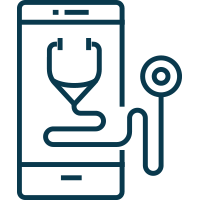
Finding Care
BlueKC has several resources for finding the best care for you. Please use the attached flyers to learn how to find providers, care, and the best savings.
Mental Health Resouces
Equip offers virtual treatment to all eating disorder diagnoses, as well as co-occurring conditions like anxiety, depression, and OCD
Family mental health care - without the wait. Bend Health has specific care plans designed for general concerns and specific conditions.
Your health plan now offers Meru Health, the groundbreaking mental healthcare service that is transforming both people’s lives and the very science of feeling better.
Do live virtual sessions with a NOCD Network ERP Therapist and get support between sessions from peer communities and self-help tools.
Taking care of your mental health is important. When our mind's aren't feeling good, it can affect our whole body and make our physical health worse.

Need help?
Please reach out to your local HR representative.

Wellness Program
Benefits provided through Wellworks and Lockton Nurse Advocate.
2026 Wellness Program
All questions regarding your Wellness Program structure, status in the program, deadlines, etc. should be directed to your Wellness Team via your Wellness Portal.
At NPG, we care about the health and well-being of our employees and their families. NPG provides an employer-sponsored wellness program available to you through Wellworks. This wellness program impacts every employee and spouse enrolled in one of NPG’s health insurance plans. Starting this year, spouses will also need to participate in the wellness program to earn the premium differential.
- Participants who complete the activities listed below by July 31, 2026, will avoid a premium surcharge in 2027.
Complete an Annual Physical with Biometric Screening by July 31, 2026
- Visit your Primary Care Physician (PCP) for an annual physical with lab work. Print out the Physician Results Form located within the Wellness Locker and take it to your doctor.
- All metrics must be collected between January 1, 2026, and July 31, 2026, and submitted to Wellworks by July 31, 2026.
- Complete the Know Your Number Assessment by July 31, 2026
- Select Know Your Number Assessment on the Homepage under the Wellbeing Desktop. Complete all questions, except for the Health Metrics section. Wellworks will upload your screening results once you complete the Annual Physical with Lab Work/Physician Results Form.
- Once your assessment is fully completed (questionnaire and health metrics), your results report will be available on the Know Your Number Assessment page within Wellworks, as well as uploaded to the Wellness Locker under the Health Records section.
- Complete the Tobacco Attestation on the Wellness portal by July 31, 2026
- You must complete the Tobacco Attestation on the wellness portal whether you are or are not a tobacco user. Go to the Homepage – My Next Steps – Tobacco Attestation. Select Get Started > Get Started > Confirm Your Participation > Enter Today’s Date > Confirm.
Participants may also be eligible for a premium discount in 2026. The above three (3) requirements must be completed by July 31, 2026. Then, the following two (2) requirements must be met by November 30, 2026.
- Meet three (3) of five (5) healthy ranges obtained from your annual physician’s visit and lab work or complete three (3) LNA calls by stated deadlines.
- Call 1 must be completed by September 30, 2026.
- Call 2 must be completed by October 31, 2026.
- Call 3 must be completed by November 30, 2026.
- Be tobacco-free by end of wellness program or complete the LNA tobacco cessation program if you are a tobacco user.
Be on the lookout for information on how to participate in the wellness program in 2026!
Wellworks Portal
To participate in the wellness program, employees and spouses must be registered on the Wellworks portal. To access your account, please follow the below instructions if you have not previously registered on the Wellworks portal.
- Go to wellworksforyoulogin.com
- Your username will be: your local company email address
- For example: john.smith@npgco.com
- You temporary password will be: your birthdate in MMDDYYY
- For example: 01051990
- Your spouse's username will be: employee's local company email address + S
- For example: john.smith@npgco.comS
- Your spouse's password will be: spouse's birthday in MMDDYYY
- For example: 06081991
- Accept the terms of the consent form
- Fill in the required information
Medical/Rx Contribution Wellness Adjustments
- $30 per month reduction for completing the five Wellness Requirements.
- $30 per month surcharge for not completing the initial three Wellness Requirements.
Discover the
Lockton Nurse Advocate (LNA) Program
Unlock a world of support and guidance with the Lockton nurse advocate (LNA) program. Our dedicated nurse team is here to assist you with personalized care and expert advice. Explore the resources below to learn more about how the LNA program can benefit you.
LNA Overview
Contact Your Dedicated Nurse Team
Phone Number: 1.833.672.2984
Email: npgnurseadvocate@lockton.com
Schedule a Consultation
Book your consultation today and embark on your journey towards personalized care and expert guidance!




Need help?
Please reach out to your local HR representative.

Tax-favored Accounts
Use these accounts to pay for healthcare expenses.
Health Savings Account (HSA)
A Health Savings Account (HSA) is available for eligible employees enrolled in the HDHP. An HSA is a personal healthcare bank account that you can use to pay for eligible out-of-pocket expenses with pre-tax dollars. You own and administer your healthcare savings account. You determine how much you will contribute to your account, when to use your money to pay for qualified expenses and when to reimburse yourself. HSAs allow you to save and “roll over” money if you do not spend it in the calendar year. The money in this account is always yours.
You are Eligible to Open and Fund an HSA if:
- You are covered by NPG’s qualified HDHP.
- You are not covered by another health plan, including your spouse’s health plan, unless it is a qualified HDHP.
- You and/or your spouse do not have funds in a Healthcare FSA or Health Reimbursement Account (HRA).
- Note: If you currently are enrolled in a Health FSA account, you cannot have any funds left in your account at the end of the year before electing the NPG HDHP and HSA.
- You are not claimed as a dependent on someone else’s tax return.
- You are not enrolled in Medicare, Medicaid, TRICARE or TRICARE For Life.
- You have not received Veterans Administration benefits in the past three months.
Advantages of an HSA
- Money you put into your account is deducted pre-tax, thereby reducing your taxable income.
- Money that stays in your account earns tax-free interest.
- Money taken from your account to pay for qualified healthcare expenses is not taxed.
- Money rolls over from year to year — no “use it or lose it” restriction.
2026 Maximum HSA Contribution Limits
Maximum limits include both NPG and employee contributions. The 2025 IRS maximum contributions to the HSA are:
- $4,400 employee only
- $8,750 employee + dependent tiers
Individuals ages 55+ may make an additional $1,000 annual catch-up contribution to their HSAs.
If you are enrolled in NPG's HDHP, NPG will contribute $30 a month for employee only coverage and $50 a month for employee + dependent coverage into your HSA for 2026!
The HSA is administered by UMB. If your coverage status or employment status changes, you will be responsible for all HSA account holder fees.
HSAs offer you the following advantages
Tax Savings
You contribute pretax dollars to the HSA. NPG will also contribute to your HSA for 2026. Interest accumulates tax-free, and funds are withdrawn tax-free to pay for medical expenses.
Reduced out-of-pocket costs
You can use the money in your HSA to pay for eligible medical, dental and vision expenses, and prescriptions. The HSA funds you use can help you meet your plan’s annual deductible.
A long-term investment that stays with you
Unused account dollars are yours to keep even if you retire or leave the company. Also, you can invest your HSA funds, so your available healthcare dollars can grow over time.
The opportunity for long-term savings
Save unused HSA funds from year to year — you can use this money to reduce future out-of-pocket health expenses. You can even save HSA dollars to use after you retire.
HSA Eligible Expenses
You can use HSA money to pay for eligible health expenses now or in the future. Your HSA can be used for your expenses and those of your spouse and dependents, even if they are not covered on your plan.
Eligible Expenses
- Medical expenses: copays, coinsurance and deductibles
- Dental expenses: exams, cleanings, X-rays and braces
- Vision expenses: exams, contact lenses, eyeglasses and laser eye surgery
- Professional services: physical therapy, chiropractic and acupuncture services
- Prescription drugs and insulin
Ineligible Expenses
-
Babysitting
-
Cosmetic surgery
-
Funeral expenses
-
Hair transplant
-
Teeth whitening
Distributions made for any other purpose are subject to income tax and a 20% penalty. The 20% penalty is waived in the case of death or disability. The 20% penalty is also waived for distributions made by individuals age 65 or older.
Why should I choose a
health savings account?
An HSA is a benefit that allows you to choose how much of your paycheck you'd like to set aside, before taxes are taken out, for healthcare expenses or use as a retirement savings tool. This plan offers tax savings that a 401(k) and IRA don't, making it a powerful option for diversifying your retirement portfolio.
HSA/FSA Eligible Expenses IRS List
The IRS provides a list of eligible services and products that you can purchase with your HSA/FSA. It is your responsibility to make sure you are eligible to contribute to your HSA/FSA, your contributions are within the IRS limits, and you are using your HSA/FSA for qualified medical expenses. For more details, see (Publication 969). Once there go to the current revision and choose (Publication 969 PDF) to learn more about this type of account. Visit irs.gov for a list of qualified medical expenses (Publication 502).
Flexible spending account (FSA)
A great way to plan ahead and save money over the course of a year is to participate in a flexible spending account (FSA). A FSA lets you redirect a portion of your salary on a pretax basis into a reimbursement account.
WEX will administer NPG’s FSA for the 2026 plan year. FSAs can save you money by allowing you to set aside pre-tax dollars from your paycheck to cover qualified expenses that you would normally pay out of pocket with after-tax dollars. NPG offers two different FSAs — a Healthcare FSA and a Dependent Care FSA.
FSA Overview
|
|
Healthcare FSA |
Dependent Care FSA |
|
How much can I contribute? |
Up to $3,400 per year |
Up to $5,000 per year |
|
How can I use the money? |
You can use it to pay for medical, dental and vision expenses, including deductibles, coinsurance, prescriptions and other eligible expenses. |
You can use it for eligible expenses at licensed day care centers, nursery schools, day camps and home care with valid tax ID numbers. |
|
What happens if there is money left at the end of the plan year? |
You have 60 days from the end of the plan year to submit claims for eligible expenses incurred through December 31, 2026. If you have not used all the funds you contributed in 2026, and you elect to participate in the plan in 2027, you will be able to roll over up to $680 in your healthcare account. Any monies left at the end of the plan year above $680 will be forfeited. |
You have 60 days from the end of the plan year to submit claims for eligible expenses incurred through December 31, 2026. Any monies left at the end of the plan year will be forfeited. |
|
When can I use the money in my account? |
Your annual elected amount is available for you to use on January 1, 2026. |
You can use only funds that are currently in your account, which increase each pay period. |
|
Do I need to keep my receipts? |
Yes |
Ye |
Why should I choose a medical flexible spending account?
A medical FSA is a benefit that allows you to choose how much of your paycheck you'd like to set aside, before taxes are takes out, for health care expenses. This saves you money by reducing your taxable income.
Dependent Care Flexible Spending Account
Dependent care FSAs allow you to set aside money pretax to pay eligible out-of-pocket day care expenses so that you or your spouse can work or attend school full time. You must contribute money through payroll deduction to your dependent care FSA before you can spend it.
You must decide how much to set aside for this account. You may contribute up to $7,500 per household — or up to $3,750 if you are married and file separate tax returns.
Eligible Expenses
-
Adult day care
-
Child day care
-
After-school care
-
Babysitting (work-related, in your home or someone else’s home)
-
Babysitting by your relative who is not a tax dependent (work-related)
-
Nanny or au pair
-
Custodial elder care
-
Transportation to and from eligible care
(provided by your care provider)
Ineligible Expenses
-
Babysitting (not work-related, for other purpose)
-
Babysitting by your tax dependent (work-related or for other purposes)
-
Custodial elder care (not work-related, for other purpose)
-
Dance lessons, piano lessons, sports lessons
-
Educational, learning, or study skills services for child(ren)
-
Household services (housekeeper, maid, cook, etc.)
WEX Mobile App
Access your benefits anytime, anywhere
Access your benefits on the go 24/7 with the WEX benefits mobile app. Our free app gives you convenient, real-time access to all your benefits accounts in one spot. This makes it easy to use your hard-earned dollars and view recent account activity without ever needing to call in.
The benefits mobile app keeps your benefits always within reach. Want to know the status of a recent claim or easily check the balance of your accounts? Log in to our secure app to get answers to those questions and so many more - wherever and whenever you want.
Mobile App Features
-
Check account balance
-
File a claim and upload documentation
-
Add FSA Debit card to Apple Pay or Samsung Pay
-
Scan an item to determine if it is an eligible expense.
Watch these brief videos to learn more about HSAs and FSAs.




Need help?
Please reach out to your local HR representative.

Dental Benefits
Benefits provided through Guardian.
NPG offers a comprehensive dental plan through Guardian that provides coverage for preventive, basic, major and orthodontia services for all members. To find an in-network provider, visit guardianlife.com.
Quick Overview
|
|
In-Network |
Out-of-Network |
|
Annual Deductible |
$50 |
|
|
Annual Plan Maximum per Member |
$1,500 plus maximum rollover |
|
|
Preventive (Deductible does not apply) |
100% |
100% |
|
Basic |
90% |
80% |
|
Major |
60% |
50% |
|
Orthodontia |
50% |
50% |
| Orthodontia Lifetime Maximum per Member | $1,500 | |
Monthly Employee Contributions
|
|
|
|
Employee |
$21.50 |
|
Employee + Spouse |
$63.38 |
|
Employee + Child(ren) |
$59.50 |
|
Family |
$107.12 |
What Is the Maximum Rollover Feature?
The Guardian dental plan has a maximum rollover feature A portion of your unused annual maximum can be rolled into a maximum rollover account that can be used in future years, if you reach the plan’s annual maximum.
|
Dental Rollover Benefit for Non-Orthodontic Services |
|
|
Paid Claims Rollover Threshold |
$700 |
|
Maximum Rollover Amount (If Utilizing Any Out-of-Network Providers) |
$350 |
|
Maximum Rollover Amount (If Utilizing Only In-Network Providers) |
$500 |
|
Maximum Rollover Limit |
$1,250 |

Dental insurance
Taking care of your teeth is about more than just covering cavities and cleanings. It also means accounting for more expensive dental work, and your overall health.
With dental insurance, routine preventive care can lead to better overall health. And you'll be able to save money if any extensive dental work is required.
The Oral and Overall Health Connection
Periodontal disease is known to trigger the body’s inflammation response and adversely affect a number of different organs.
- The brain: Gum disease carries a stronger risk for stroke than diabetes. Research has found that the impact of gum disease is almost equivalent to high blood pressure, which is a major cause of strokes.
- The heart: Those with gum disease are almost twice as likely to suffer from heart disease compared to those with healthy gums.
- The lungs: Poor oral health may worsen respiratory illnesses by promoting the growth of harmful bacteria that can be transported to the lungs.
- The pancreas: Research suggests a significant association between gum disease and pancreatic cancer.
- The kidneys: The leading cause of tooth loss in adults is periodontal disease. And, edentulism, the condition of being toothless, is closely associated with chronic kidney disease.
Other health concerns: Periodontal disease is a cause for concern for pregnant women and diabetics. Expecting mothers who have gum disease are said to be four to seven times more likely to have a baby that is born too early or too small. Nearly 95 percent of Americans who have diabetes also have periodontal disease. Studies strongly suggest that this disease has the ability to disrupt blood sugar levels.
A distinct connection exists between the health of your mouth and that of your body.
Research shows more than 120 illnesses can be identified in the mouth through a dental exam, including osteoporosis, bulimia, diabetes and oral cancer. Even more importantly, an unhealthy mouth can have harmful effects on the heart, kidneys, lungs, pancreas and brain.

Understand the Underlying Issue
According to the Centers for Disease Control and Prevention, nearly one out of two Americans, 30 years of age or older, has periodontal disease. This translates to 64.7 million individuals with a mild, moderate or severe form of this gum condition.
Periodontal disease is a chronic bacterial infection that affects your gums and the bone supporting your teeth. It can occur for many reasons, including poor hygiene, unhealthy diet, smoking and stress.
Early gum disease, known as gingivitis, is characterized by red, swollen, bleeding gums. In this milder form of the disease, only the gums are affected. At this stage, the condition is treated with a proper oral health regime and regular dental visits. Gingivitis is usually reversible.
In the later stage of the disease, called periodontitis, gums are seriously damaged. Gums begin to pull away from the teeth, and supporting bone may be lost. This stage is irreversible and could require surgical treatments.
Sources: Academy of General Dentistry, American Dental Association, American College of Prosthodontists, Centers for Disease Control, Dental Management of the Medically Compromised Patient (7th ed.).
Proactively Protect Your Oral and Overall Health
Maintaining good oral health practices is essential to keeping your natural teeth strong and healthy as you age.
Establishing and maintaining good oral health is essential to your overall health and wellness.
To prevent gum disease, be sure to:
- Brush at least twice a day (morning and evening) with fluoride toothpaste
- Floss gently once a day
- Drink fluoridated water
- Eat wisely and limit sugary snacks and drinks
- Avoid tobacco and limit alcohol
- Visit your dentist twice a year
Need help?
Please reach out to your local HR representative.

Vision Benefits
Benefits provided through Guardian.
NPG’s vision plan through Guardian allows you the option of choosing to participate in the VSP or the Davis network. Rates are the same for the two networks. VSP typically contracts with private-practice providers, while Davis contracts with some private-practice providers as well as some big-box retailers.
Quick Overview
|
|
VSP Network |
Davis Network |
||
|
In-network |
Out-of-network |
In-network |
Out-of-network |
|
|
Frequency Limitations |
Exams- Every 12 months Lenses/Contacts – Every 12 months Frames – every 24 months |
Exams- Every 12 months Lenses/Contacts – Every 12 months Frames – every 24 months |
||
|
Examinations |
|
|
||
|
Annual Eye Exam |
$10 Copay |
$65 Allowance |
$10 Copay |
$50 Allowance |
|
Lenses |
|
|
||
|
Single Vision |
$25 Copay |
$50 Allowance |
$25 Copay |
$48 Allowance |
|
Lined Bifocal |
$25 Copay |
$75 Allowance |
$25 Copay |
$67 Allowance |
|
Lined Trifocal |
$25 Copay |
$100 Allowance |
$25 Copay |
$86 Allowance |
|
Lenticular |
$25 Copay |
$126 Allowance |
$25 Copay |
$126 Allowance |
|
Frames |
|
|
||
|
Eyeglass Frames |
$150 Allowance 20% discount on amount over allowance |
$75 Allowance |
$150 Allowance |
$108 Allowance |
|
Contact Lenses (Instead of Glasses) |
|
|
||
|
Elective |
$150 Allowance |
$130 Allowance |
$150 Allowance |
$108 Allowance |
|
Medically Necessary |
$25 Copay |
$210 Allowance |
$25 Copay |
$210 Allowance |
Monthly Employee Contributions
|
|
|
|
Employee Only |
$9.02 |
|
Employee + Spouse |
$17.44 |
|
Employee + Child(ren) |
$14.42 |
|
Employee + Family |
$22.84 |
Vision insurance
Vision insurance helps protect the health of your eyes by providing coverage for benefits that are often aren't covered by regular medical insurance.
Protecting your eyesight means allowing for routine visits to the optometrist for eye exams, as well as coverage for glasses and contacts. Make sure your eyes remain in great chape at any age - no matter how much time you spend staring at digital screens.


Find a vision provider
It's easy to find a network vision provider
We are committed to ensuring that you have the tools and resources to get the most from your benefits. This starts with making it easy to find a network provider. Remember, using a network vision plan is one of the best ways to save on important care.
Why Your Heart Loves Regular Eye Exams
Just as your primary care physician may listen to your heartbeat and check your blood pressure to monitor your heart rate, your eye doctor examines your eyes to get a clear look into your cardiovascular system. In fact, the eye is one of the only areas of the body where doctors have an unobstructed view of blood vessels. A full eye examination may reveal the first signs of serious heart conditions, including high blood pressure, before symptoms show up elsewhere in the body. And if not managed effectively, many of these cardiovascular conditions can lead to vision loss, too.
As part of your exam, your eye doctor may examine the retina to view small changes in the blood vessels in the back of the eye. This test can detect more serious diseases and is painless and noninvasive. Recent advancements such as digital retinal imaging enable your eye doctor to monitor all the structures of the retina over time.
What Your Eyes Say About Your Blood Pressure
Known as the “silent” disease because its victims often lack symptoms, high blood pressure affects about one in three adults in the United States — while more than one in five people don’t even know they have it.1 A comprehensive eye exam, however, may uncover early signs of cardiovascular disease.
Your eye doctor can check for subtle changes in the retina that result from high blood pressure, a condition called hypertensive retinopathy.2 If your eye doctor sees these changes, he or she can refer you to your primary care physician, who can recommend further testing and treatment.
In some cases, vision loss can occur due to hemorrhages or hypertensive retinopathy. This condition happens when blood obstructs the retina, the eye is deprived of oxygen or the macula (the central part of the eye) swells. Obstruction of the arteries and blood vessels in the retina can be temporary or permanent.3
By maintaining a healthy lifestyle, you can help avoid risk factors that may affect heart health and vision. Take care of your heart and eyes by following these steps:
-
Exercise regularly
-
Maintain a proper weight
-
Eat a heart-healthy diet rich in omega-3 fatty acids, antioxidants and soluble fiber
Consult with your medical doctor before starting any exercise or diet program. And don’t forget to see your eye care professional for regular eye exams. Your eyes and heart will thank you.
1 National Library of Medicine, National Institutes of Health
2 American Heart Association, “Understand Your Risk for High Blood Pressure,”
3 Harvard Medical School, “Eye Exams, High Blood Pressure Symptoms & Diabetes Symptoms,”
Need help?
Please reach out to your local HR representative.

Basic Life Insurance & Disability
Benefits provided through Lincoln Financial.
Basic Life and AD&D
NPG provides term life to full-time employees who work 30 or more hours per week and their families. Each employee is covered in the amount of 1 x annual earnings to a maximum of $500,000 in the event of your death. Additionally, a matching cash benefit is provided to your loved one should your death be an accident. If you suffer a covered loss in an accident, such as losing a limb or your eyesight, a cash benefit is available. Basic life coverage is provided for your spouse and eligible child(ren) in the amount of $2,000.
Voluntary Life
In addition to the NPG paid life benefit, there is supplemental coverage for you and your spouse. Spousal coverage can not exceed employee coverage. Rates are based on age, as shown below.
- Employee: Increments of $10,000 to $500,000; guaranteed issue $100,000.
- Spouse: Increments of $5,000 to $250,000; guaranteed issue $25,000.
Important Voluntary Life Information
During annual open enrollments, employees who did not enroll during their initial enrollment period OR employees who have current supplemental coverage can increase their election amounts by $10,000 or $20,000, $5,000 or $10,000 for spouses, without providing evidence of insurability.
Other amounts, including those over the guaranteed issue, are subject to evidence of insurability.
2026 Voluntary Life Rates
|
Age Band (Rates per $1,000 of Coverage per Month) |
|
|
<30 |
$0.06 |
|
30-34 |
$0.09 |
|
35-39 |
$0.13 |
|
40-44 |
$0.19 |
|
45-49 |
$0.32 |
|
50-54 |
$0.50 |
|
55-59 |
$0.89 |
|
60-64 |
$1.29 |
|
65-69 |
$1.96 |
|
70-74 |
$3.90 |
|
75-79 |
$7.79 |
|
80+ |
$7.79 |
Your Disability Options
Have you considered what happens if you could not go to work as a result of a disabling illness or accident? Disability insurance goes to work when you cannot.
Voluntary Short-Term Disability*
Short-term disability (STD) insurance is designed to pay a weekly benefit to you in the event that you cannot work due to a covered illness or injury. This benefit replaces a portion of your income, thus helping you meet your financial commitments in a time of need. The benefit amount is up to 50% of your salary to a maximum of $2,000 per week. Benefits begin on the eighth day of illness or injury and may last up to 90 days. This coverage is voluntary, and the cost is paid by the employee at $0.35 per $10 of benefits.
*Not available to employees residing in California, Colorado or Oregon.
Formula for Calculating your STD Benefit Cost
- Annual compensation / 52 = weekly compensation
- Weekly compensation x 50% = weekly benefit (reduction rate of 50%)
- Weekly benefit / 10 = weekly benefit units
- Weekly benefit units x $0.35 = monthly premium
Voluntary Long-Term Disability
Long-term disability insurance is designed to pay a monthly benefit to you in the event that you cannot work due to a covered illness or injury. The benefit amount is up to 60% of your salary to a maximum of $13,000 per month. Benefits begin after 90 days of illness or injury. This coverage is voluntary, and the cost is paid by the employee. Rates are based on age and income.
|
Age Band (Rates per $100 of Compensation |
|
|
<25 |
$0.196 |
|
25-30 |
$0.241 |
|
30-34 |
$0.271 |
|
35-39 |
$0.422 |
|
40-44 |
$0.542 |
|
45-49 |
$0.783 |
|
50-54 |
$1.159 |
|
55-59 |
$1.355 |
|
60-64 |
$1.528 |
|
65-69 |
$1.882 |
|
70+ |
$2.56 |
Formula for Calculating your LTD Benefit Cost
- Annual compensation / 100 = annual benefit units
- Annual benefit units x age rate = annual premium
- Annual premium / 12 = monthly premium
Important Voluntary Disability Information
Voluntary STD and LTD coverages are subject to a 3/12 pre-existing condition provision for new hires and late entrants who enroll during the defined annual enrollment period.
If you have a medical condition that begins before your coverage takes effect, and you receive treatment for a condition within the 3 months leading up to your coverage start date, you may not be eligible for benefits for that condition until you have been covered by the plan for 12 months.
Watch these brief videos to learn more about your salary protection options.




Need help?
Please reach out to your local HR representative.

Retirement
Benefits provided through Principal Financial Services.
401(k) Plan Highlights
All newly hired employees who are age 18 or older are eligible to enroll in NPG’s 401k plan after they have satisfied their waiting period, which is the first of the month following the month of employment. NPG will match employee savings of up to 8% at 35% (or 2.8% maximum). If no election has been made by the first pay period after 30 days of employment, NPG will automatically enroll employees at 4%. Those employees who are automatically enrolled at 4%, and do not make a later election, are increased annually by 1% until they are at a participation level of 6%. NPG offers both a pre-tax 401k and a post-tax Roth 401k option to employees. Please note that the company match occurs each pay period and employees are 100% vested in both employee and employer funds immediately.
Qualified Non-Elective Contribution (QNEC)
NPG’s 401k retirement program allows for a Qualified Non-Elective Contribution (QNEC) at the discretion of company ownership. To be eligible for the Qualified Non-Elective Contribution (QNEC), employees must complete one year of service, be 21 years of age and work 1,000 hours as of December 31st of each plan year. The QNEC is based on a percent of annual eligible W-2 earnings.
The QNEC does not require an employee to defer personal funds to meet the eligibility guidelines. NPG distributes a “Dream Check” each year to those participants who receive the QNEC. The Dream Check is a representation (not valid for cash or deposit) of the contribution NPG deposits in each eligible account.

Access to your funds
In general, funds in your 401(k) plan are not available to be withdrawn while you are an active employee. However, there are a few options that allow you to access some or all your funds depending on your age and/or the reason. Additional details are available online.
- Loan: you may be eligible to borrow up to 50% of your own contributions (minimum account balance of $2,000 and maximum request of $50,000); fees are associated and repayment of the principal and interest is handled through payroll deductions; one loan at a time and maximum of three per calendar year.
- Hardship Withdrawal: eligibility is determined by IRS-regulated criteria (contact Principal); only funds that you have contributed are available; requested through a self-certification process; subject to fees and taxation.
- 59 ½ Withdrawal: you must be age 59 ½ or older and may withdraw part or all your funds; subject to fees and taxation (excludes the 10% penalty).
- Domestic Abuse Withdrawal: participants who are victims of domestic abuse can withdraw the lesser of 50% of their account balance or $10,000, with self-certification by the participant.
- Terminally Ill Patients: participants that are eligible for a distribution and receive a physician certification deeming them terminally ill can take a distribution and avoid the 10% penalty tax.
- Qualified Federally Declared Disaster Distributions: participants living in a federally declared disaster area can withdraw up to $22,000 or take a loan of the lesser of $100,000 or 100% of their account balance.
Upon termination from employment, your funds become accessible. Options include taking a cash distribution (subject to taxation), directing a rollover to another qualified account (fees are associated) or leaving the funds in the NPG plan (minimum balance at time of termination must at least $7,000 for this option).
The above-mentioned transactions may be initiated online at www.principal.com after registering and accessing your account. You may contact Principal at 800-547-7754 and request assistance with this online activity.
In-plan Roth transfer
Another retirement plan option allows you to make a one-time, lump sum, in-plan Roth transfer of your vested account balance. See the links to a flier and instruction flowchart for making an in-plan Roth transfer.
NPG is committed to offering a “best in class” retirement benefit to all employees. This undertaking includes holding quarterly retirement benefits committee meetings that include the committee, advisors and Principal teams to review and monitor the oversight of the retirement plan, its design, investments and participant impacts.
NPG highly recommends you register your account with Principal and designate a beneficiary as soon as you have funds. Registering your account will establish two-factor authentication and follows the Department of Labor’s best practices for cybersecurity and privacy.



Need help?
Please reach out to your local HR representative.

Employee Assistance Program
Benefits provided through Lucet Health.
Employee Assistance Program
NPG offers, at no cost to employees, a comprehensive employee assistance program (EAP) through Lucet Health. Life is always changing. It’s filled with challenges, opportunities and questions that can lead you into uncharted territory. Even when you’re just trying to balance family, work and everyday life, things can get unpredictable. Personal problems can impact our daily lives, both at home and at work. Sometimes it’s difficult to admit the effect that problems can have or to ask for help.
Our EAP is a work-based program that offers free and confidential assessments, short-term counseling, referrals and follow-up services to our employees who have personal and/or work-related problems. The EAP provides access to trained professionals in individual, marriage and family counseling, as well as employee assistance. It is available for a wide variety of work or life concerns, including but not limited to:
-
Marital or family counseling
-
Parental guidance
-
Child and/or senior care
-
Legal consultation
-
Financial counseling
-
Emotional or mental health assistance
-
Alcohol or drug abuse
-
Legal matters
-
Financial issues
-
Anxiety
-
Stress management
You can call the EAP for assistance as many times as you need, and you also have access to three (3) face-to-face or telephonic sessions at no cost with a specialist per issue. Counselors will be able to assess your situation, recommend an action plan and/or refer you to other resources, if necessary. All calls into the EAP are 100% confidential.
Employee Assistance Program
Personalized care and resources, when you need them.
Whether its planning for your financial future or beginning to seek mental health resources, your Employee Assistance program (EAP) is here to help. Available to you and your household members, Lucet's EAP is your first step to resources, counseling and so much more to support your well being
Access Thousands of Experts and Resources:
- Go to lucethealth.com
- Choose Log in
- Select “Employee Assistance Program” in the drop-down box
- Enter your EAP company code: NPGCO
For any additional questions or concerns, call 800-624-5544 or visit lucethealth.com. EAP representatives are available 24/7/365.
988 Suicide & Crisis Lifeline
If you or someone you know is in crisis, dial 988 for immediate, free, confidential support from a trained professional. The 988 Suicide & Crisis Lifeline provides free and confidential emotional support to people in suicidal crisis or emotional distress 24 hours a day, 7 days a week, across the United States.
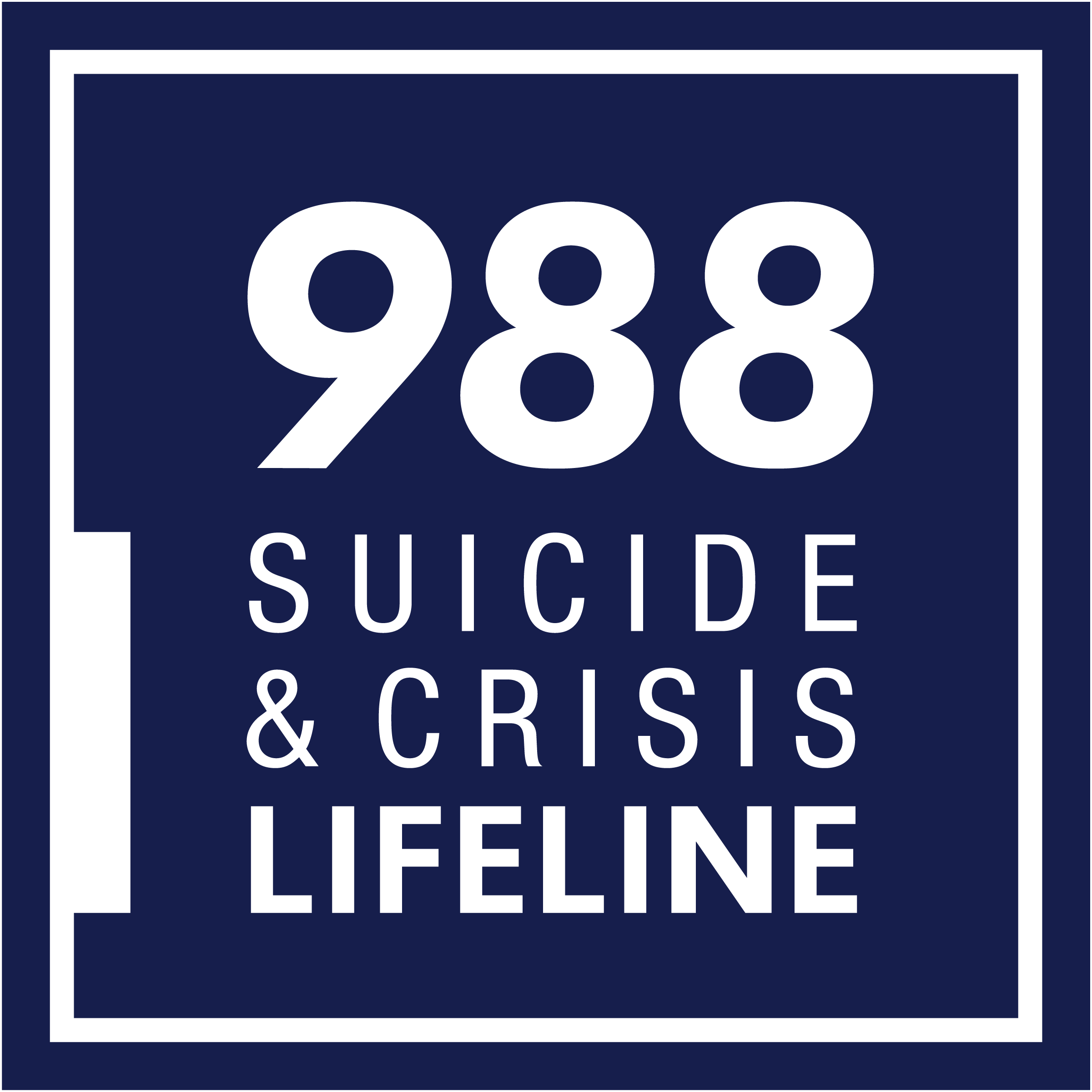
Need help?
Please reach out to your local HR representative.

Perks and Time Off
Benefits provided through News-Press & Gazette.
Federal Holidays
NPG currently recognizes the following holidays which are available to all regular full-time employees:
-
New Year's Day (January 1)
-
Memorial Day (last Monday in May)
-
Independence Day (July 4)
-
Labor Day (first Monday in September)
-
Thanksgiving (fourth Thursday in November)
-
Christmas (December 25)
-
2 Personal Holidays (Per Calendar Year)
If a recognized holiday falls on a Saturday, NPG will observe it on the Friday before the holiday. If a recognized holiday falls on a Sunday, NPG will observe it on the Monday after the holiday.
Personal Holidays
Personal holidays can be taken any time throughout the calendar year with supervisor approval. If an employee starts after June 30, he/she will get only one personal holiday during that calendar year. If an employee starts after September 30, he/she will not receive a personal holiday that calendar year.
Personal holidays do not roll over from one calendar year to the next (i.e., personal holidays must be used by December 31 of each calendar year), unless otherwise required by applicable law.
Paid Time Off (PTO)
NPG provides Paid Time Off (PTO) to eligible employees. PTO is an all-purpose time-off policy. You can use PTO for vacation, illness or injury and other personal time. PTO combines traditional vacation, sick leave and personal time into one flexible, paid time-off policy.
PTO Plan
The PTO plan is comprised of vacation, sick and personal allowance hours. You will accumulate time in the plan based on your service years and employee classification and the accumulation rate increases with seniority. (Refer to the below links for the accumulation rates based on your work state).
Accumulation
PTO hours will accumulate each pay period and carry over year-to-year. Maximum accruals exist based on your service years. If you have reached the maximum allowance, you will not be eligible for additional hours until you reduce the available hours below the maximum. No PTO time will accumulate if you are on a leave for more than two consecutive weeks. Your current PTO balance will be reflected on your pay stub each payday and also on the Accruals tile on the dashboard of the timekeeping system.
PTO Utilization
PTO days should be scheduled with your supervisor well in advance. Each request will be reviewed based on a number of factors, including our business needs and staffing requirements. Vacation may be scheduled within the department on an annual basis with a limit to the number of employees who may be off work at the same time. Certain blackout periods within our different companies may be necessary, e.g., sweeps periods in the television industry, progress editions in the newspapers, etc. PTO requests are approved based on having available PTO hours. Any pre-approved PTO hours are subject to cancellation if PTO hours are not available for the requested time off.
If a requested PTO day is denied by management, and you are absent from work on the previously denied day, discipline may result.
Any absence due to an illness for more than 3 consecutive days will require a doctor's note to return to work. NPG reserves the right to request documentation for other absences.
All approved leaves of absence will require you to use available PTO and/or long-term sick hours. Employees are required to use PTO for all personal time away from work, when PTO hours are available.
Exempt personnel must complete and submit a timesheet each pay period. Full-day and partial day absences of exempt personnel which are required for personal reasons will be paid from PTO hours, if available. If an exempt employee has depleted all available PTO hours, the employee will not be paid for full-day absences due to personal (i.e. non-work) reasons.
You will be paid for PTO at your base pay rate as of the time of the absence. PTO pay does not include overtime or any special forms of compensation such as incentives, commissions, bonuses, or shift differentials.
Paid PTO hours are not counted as hours worked for purposes of calculating overtime.
Termination
Unused PTO time has no cash value upon termination of employment, unless otherwise required by law. However, employees who meet all of the following eligibility requirements will receive 50% of unused PTO hours:
-
voluntarily resign, retire, or have his or her job eliminated due a reduction in force
-
provide at least two weeks’ notice in advance of voluntary resignation or retirement
-
actually work each scheduled day of the minimum notice period, with no partial-day or full-day absences, and
-
maintain acceptable performance during the notice period.
You are required to work each day of the two-week notice period and will not be paid PTO during this time (exceptions may be made for mitigating conditions). However, if you provide more than two weeks’ notice, you would be allowed to use PTO in the equivalent of the excess notice given. PTO may not be used to denote a final day of employment; the final day of employment must be worked.
However, if NPG, in its sole discretion, terminates your employment for cause, you may lose any remaining unused PTO and will not be paid for it, unless otherwise required by law.
To the extent any applicable paid sick time/leave law or ordinance provides any greater rights than set forth in this policy, such provisions are incorporated by reference.
Jury Duty Leave
NPG realizes that it is the obligation of all U.S. citizens to serve on a jury when summoned to do so. All employees are allowed time off to perform such civic service as required by applicable law. Employees in an eligible classification may request up to 2 weeks of paid jury duty leave over any 1-year period unless otherwise required by applicable law.
If you are eligible for jury duty, you will be paid at your base rate of pay for the number of hours you would normally have worked that day. Employees in the following classifications are eligible for paid jury duty leave:
- Regular full-time employees
- Regular part-time employees
If you stay on jury duty longer than paid jury duty allows, you may use any available PTO benefits you have to be compensated for the unpaid jury duty leave. Exempt employees are paid their full salary for any week in which they perform authorized work for NPG.
If you get a jury duty summons, show it to your supervisor as soon as possible. This will help us plan for your possible absence from work. You are required to report to work when released from jury duty if any portion of the workday remains.
Either you or NPG may ask the court to excuse you from jury duty. We may ask that you be relieved from jury duty if we think that your absence would cause serious operational problems for NPG. However, it should be recognized that it is difficult to obtain a postponement of jury duty service. If approved by the court, a copy of the notice should be sent to Human Resources and placed in your personnel file.
Subject to the terms, conditions, and limitations of the applicable plans, NPG will continue to provide health insurance benefits for the full period of paid and unpaid jury duty leave. Your PTO benefits will continue to accumulate as per the PTO policy during jury duty leave.
Berevement Leave
NPG provides bereavement leave to employees to protect their income when they are unable to work due to a death in the family.
Employees in the following employment classifications are eligible for bereavement leave with pay:
- Regular full-time employees
Employees will be granted up to five (5) days at regular rate of pay in the event of death or loss of:
- Spouse, child, stepchild
Employees will be granted up to three (3) days at regular rate of pay in the event of death of:
- Parent, grandparent, grandchild, brother, sister
- All "step" and "in-law" variations of this list
Employees will be granted up to one (1) day at regular rate of pay in the event of death of:
- Aunt, uncle, niece, nephew, great grandparent
In the event of a miscarriage, medical certification must be provided to be eligible for bereavement pay.
We will also consider requests for bereavement leave in the event of a death of someone who was as close to you as an immediate family member. Approval of such requests will be determined by the employee’s department manager or equivalent, and the Human Resources Manager.
In the event the employee is solely responsible for making final arrangements or transacting financial or legal arrangements, additional time off may be granted by the employee's department head or equivalent, and the Human Resources Manager.
If the employee needs to use bereavement leave at a later time from the actual date of the death (to make final arrangements, transact financial or legal arrangements, attend a memorial service, etc.), it may be granted by the employee's department head or equivalent, and the Human Resources Manager.
When a family member's death occurs during an employee's vacation period, PTO days with pay may be traded for approved bereavement leave.
All absences must be reported to the employee’s supervisor as soon as practical. Bereavement leave does not count as time worked for overtime purposes. Bereavement pay will not come out of an employee's PTO bank. Employees may be asked to provide documentation along with their bereavement request, to the extent permitted by applicable law. Documentation must provide name of the deceased, date of death, city of death and relationship to the deceased.
Tuition Assistance Program
NPG offers educational assistance program for regular full-time employees to maintain and improve their job-related skills through formal education. You must first complete 90 calendar days of service as a regular full-time employee to participate in educational assistance and you must continue to be an active employee while you receive education assistance. Click on more information to see full details on qualifying courses/expenses and application process.
Assistance reimbursement are limited to $1,000 per semester, not to exceed $2,000 per calendar year. Education assistance will be paid according to the following schedule:
Final grade of "A" - 100% refund
Final grade of "B" - 75% refund
Final grade of "C" - 50% refund
Pass or Fail courses will be refunded at 100% if passed
Employee Referral Program
NPG’s Employee Referral Program is designed to encourage and reward employee referral participation for all full-time positions. Research has shown, and our own experience supports, that people joining our organization through employee referrals are excellent contributors, stay with us longer, and are more cost effective to recruit.
When an active NPG employee refers a qualified candidate for an open full-time position and they are hired, the referring employee will be eligible to receive a cash-based taxable incentive through NPG’s regular payroll process. This incentive will be processed during the first applicable pay period following the date the candidate reports to work.
To be eligible, a completed Referral Form and copy of the candidate’s resume or application must be submitted directly to HR prior to the referred candidate’s first day of employment. Note: Supervisors/managers are not eligible for this program if the candidate is hired within their respective department
Click on More Information for details on incentive structure and guidelines.
Need help?
Please reach out to your local HR representative.

Additional Services
SmartConnect
SmartConnect is a free Medicare education and enrollment resource available to employees, retirees, and their friends/family. This concierge service helps explain everything you will need to know through on -demand resources and live Medicare experts. This is all provided at no cost to you! Call 833-799-3312 or visit SmartConnect’s website
Caregiver Support and Education
Caring for an aging parent? A child with unique support needs? A spouse or partner with a chronic health condition? NPG employees and families have access to Trualta, an online platform with education, resources and support to help make caregiving easier and more fulfilling.
LifeKeys®
The LifeKeys program provides access to a wide array of services to prepare you and your loved ones through life’s ups and downs. LifeKeys services include:
-
Online Will Preparation: Having a will allows you to designate who will receive your property and assets when you're gone. Without one, your state determines how your estate is distributed. Learn more.
-
Protection Against Identity Theft: Identity theft is widespread, and everyone is vulnerable. LifeKeys includes an online resource for the information you need to recognize and prevent identity theft — and restore your good name.
-
Information on Important Life Matters: You have access to GuidanceResources® Online, where you’ll find articles, tutorials, videos and “Ask the Expert” advice on a wide range of topics — including legal, financial, family and career.
Call 855-891-3684 or visit guidanceresources.com. (First-time user: Enter Web ID — LifeKeys.)
TravelConnect
TravelConnect is a comprehensive program that can bring help, comfort and reassurance if you face a medical emergency while traveling 100 or more miles from home. Whether traveling for business or leisure, you have support — 24 hours a day, 7 days a week. You can count on TravelConnect to:
- Arrange and pay for transportation to the nearest medical facility. They’ll also arrange and pay for the patient’s trip home.
- Coordinate travel and airfare for your dependent children under 18. This includes the services, transportation expenses and accommodations of a nonmedical escort.
Monitor Medical Care and Recovery — Services Include:
- Medical record requests
- Communication with your family, employer and physician back home
- Recovering lost or stolen documents
- Language translation
For a complete list of TravelConnect services, go to lincolnfinancial.com/travelconnect and enter your policy number.
Beneficiary Services
Beneficiaries of employees covered under group term life insurance policies from Lincoln Financial Group are eligible for LifeKeys services. These services offer additional support to cope with the loss of a loved one. Services are available for up to one year after a loss and include a total of six in-person or virtual sessions and unlimited telephonic support for grief counseling and legal or financial resources.
WellnessPATH
Meeting your everyday financial goals is hard, especially when you're struggling with credit card debt, paying off student loans, trying to save more for retirement, or building a vacation fund. Now is the time to get your financial life in order - and Lincoln Financial can help. Lincoln WellnessPATH® is an online tool that offers personalized action steps to help you
manage your financial life. Complete a quick quiz to receive a wellness score and some simple steps you can take to
improve your score. Whether you want to create a budget, determine if you have enough life insurance, or figure out a way to save for your dream vacation, you can do it using Lincoln WellnessPATH.
Employee Assistance Program
Lincoln Financial offers EmployeeConnect through ComPsych Guidance Resources to all employees and dependents at no cost! EmployeeConnect offers professional, confidential services to help you and your loved ones improve your quality of life. You and your family get up to five in-person sessions with a counselor per person, per issue, per year (California residents are only eligible for up to three sessions in six months). You also have access to in-person consultations with network lawyers including one free 30-minute consultation per legal issue and 25% off subsequent meetings.
Visit guidanceresources.com, download the GuidanceNow mobile app, or call 888-628-4824 for more information.
Need help?
Please reach out to your local HR representative.

Helpful Terms
Here are some terms you may see that describe your benefits.




Balance Billing
When a provider bills you for the balance remaining on the bill that your plan doesn’t cover. This amount is the difference between the actual billed amount and the allowed amount. For example, if the provider’s charge is $200 and the allowed amount is $110, the provider may bill you for the remaining $90. This happens most often when you see an out-of-network provider. A network provider may not bill you for covered services.
Claim
A request for a benefit (including reimbursement of a health care expense) made by you or your health care provider to your health insurer or plan for items or services you think are covered.
Coinsurance
Your share of the costs of a covered health care service, calculated as a percentage (for example, 20%) of the allowed amount for the service. You generally pay coinsurance plus any deductibles you owe. (For example, if the health insurance or plan’s allowed amount for an office visit is $100 and you’ve met your deductible, your coinsurance payment of 20% would be $20. The health insurance or plan pays the rest of the allowed amount.)
Copay
A fixed amount (for example, $15) you pay for a covered health care service, usually when you receive the service. The amount can vary by the type of covered health care service.
Cost Sharing
Your share of costs for services that a plan covers that you must pay out of your own pocket (sometimes called out-of-pocket costs). Some examples of cost sharing are copayments, deductibles, and coinsurance. Family cost sharing is the share of cost for deductibles and out-of-pocket costs you and your spouse and/or child(ren) must pay out of your own pocket. Other costs, including your premiums, penalties you may have to pay, or the cost of care a plan doesn’t cover usually aren’t considered cost sharing.
Deductible
An amount you could owe during a coverage period (usually one year) for covered health care services before your plan begins to pay. An overall deductible applies to all or almost all covered items and services. A plan with an overall deductible may
also have separate deductibles that apply to specific services or groups of services. A plan may also have only separate deductibles. (For example, if your deductible is $1,000, your plan won’t pay anything until you’ve met your $1,000 deductible for covered health care services subject to the deductible.)
Embedded Deductible
If you are on a family medical plan with an embedded deductible, your plan contains two components: an individual deductible and a family deductible. Having two components to the deductible allows each member of your family to have your insurance policy cover their medical bills prior to the entire dollar amount of the family deductible being met. The individual deductible is embedded in the family deductible.
Explanation of Benefits (EOB)
An EOB is a statement from the insurance company showing how claims were processed. The EOB tells you what portion of the claim was paid to the healthcare provider and what portion of the payment, if any, you are responsible for.
Emergency Medical Transportation
Ambulance services for an emergency medical condition. Types of emergency medical transportation may include transportation by air, land, or sea. Your plan may not cover all types of emergency medical transportation, or may pay less for certain types.
Emergency Room Care/Emergency Services Services to check for an emergency medical condition and treat you to keep an emergency medical condition from getting worse. These services may be provided in a licensed hospital’s emergency room or other place that provides care for emergency medical conditions.
Health Insurance
A contract that requires a health insurer to pay some or all of your health care costs in exchange for a premium. A health insurance contract may also be called a “policy” or “plan”.
Hospitalization
Care in a hospital that requires admission as an inpatient and usually requires an overnight stay. Some plans may consider an overnight stay for observation as outpatient care instead of inpatient care.
Hospital Outpatient Care
Care in a hospital that usually doesn’t require an overnight stay.
Individual Responsibility Requirement
Sometimes called the “individual mandate”, the duty you may have to be enrolled in health coverage that provides minimum essential coverage. If you don’t have minimum essential coverage, you may have to pay a penalty when you file your federal income tax return unless you qualify for a health coverage exemption.
In-network Coinsurance
Your share (for example, 20%) of the allowed amount for covered healthcare services. Your share is usually lower for in-network covered services.
In-network Copayment
A fixed amount (for example, $15) you pay for covered health care services to providers who contract with your health insurance or plan. In-network copayments usually are less than out-of-network copayments.
Maximum Out-of-Pocket Limit
Yearly amount the federal government sets as the most each individual or family can be required to pay in cost sharing during the plan year for covered, in-network services. Applies to most types of health plans and insurance. This amount may be higher than the out-of-pocket limits stated for your plan.
Network Provider (Preferred Provider)
A provider who has a contract with your health insurer or plan who has agreed to provide services to members of a plan. You will pay less if you see a provider in the network. Also called “preferred provider” or “participating provider.”
Out-of-Network Coinsurance
Your share (for example, 40%) of the allowed amount for covered health care services to providers who don’t contract with your health insurance or plan. Out-of-network coinsurance usually costs you more than in-network coinsurance.
Out-of-Network Copayment
A fixed amount (for example, $30) you pay for covered health care services from providers who do not contract with your health insurance or plan. Out-of-network copayments usually are more than in-network copayments.
Out-of-network Provider (Non-Preferred Provider)
A provider who doesn’t have a contract with your plan to provide services. If your plan covers out-of-network services, you’ll usually pay more to see an out-of-network provider than a preferred provider. Your policy will explain what those costs may be. May also be called “non-preferred” or “non-participating” instead of “out-of-network provider”.
Out-of-Pocket Limit
The most you could pay during a coverage period (usually one year) for your share of the costs of covered services. After you meet this limit the plan will usually pay 100% of the allowed amount. This limit helps you plan for health care costs. This limit never includes your premium, balance-billed charges or health care your plan doesn’t cover. Some plans don’t count all of your copayments, deductibles, coinsurance payments, out-of-network payments, or other expenses toward this limit.
Plan
Health coverage issued to you directly through an employer, union or other group sponsor (employer group plan) that provides coverage for certain health care costs. Also called "health insurance plan", "policy", "health insurance policy" or "health insurance".
Preauthorization
A decision by your health insurer or plan that a health care service, treatment plan, prescription drug or durable medical equipment (DME) is medically necessary. Sometimes called prior authorization, prior approval or precertification. Your health insurance or plan may require preauthorization for certain services before you receive them, except in an emergency. Preauthorization isn’t a promise your health insurance or plan will cover the cost.
Premium
The amount that must be paid for your health insurance or plan. You and/or your employer usually pay it monthly, quarterly, or yearly.
Prescription Drug Coverage
Coverage under a plan that helps pay for prescription drugs. If the plan’s formulary uses “tiers” (levels), prescription drugs are grouped together by type or cost. The amount you'll pay in cost sharing will be different for each "tier" of covered prescription drugs.
Preventive Care (Preventive Service)
Routine health care, including screenings, check-ups, and patient counseling, to prevent or discover illness, disease, or other health problems.
Primary Care Provider
A physician, including an M.D. (Medical Doctor) or D.O. (Doctor of Osteopathic Medicine), nurse practitioner, clinical nurse specialist, or physician assistant, as allowed under state law and the terms of the plan, who provides, coordinates, or helps you access a range of health care services.
Provider
An individual or facility that provides health care services. Some examples of a provider include a doctor, nurse, chiropractor, physician assistant, hospital, surgical center, skilled nursing facility, and rehabilitation center. The plan may require the provider to be licensed, certified, or accredited as required by state law.
Reasonable and Customary
The amount of money a health plan determines is the normal or acceptable range of charges for a specific health-related service or medical procedure. If your healthcare provider submits higher charges than what the health plan considers normal or acceptable, you may have to pay the difference.
Referral
A written order from your primary care provider for you to see a specialist or get certain health care services. In many health maintenance organizations (HMOs), you need to get a referral before you can get health care services from anyone except your primary care provider. If you don’t get a referral first, the plan may not pay for the services.
Rehabilitation Services
Health care services that help a person keep, get back, or improve skills and functioning for daily living that have been lost or impaired because a person was sick, hurt, or disabled. These services may include physical and occupational therapy, speech-language pathology, and psychiatric rehabilitation services in a variety of inpatient and/or outpatient settings.
Screening
A type of preventive care that includes tests or exams to detect the presence of something, usually performed when you have no symptoms, signs, or prevailing medical history of a disease or condition.
Specialist
A provider focusing on a specific area of medicine or a group of patients to diagnose, manage, prevent, or treat certain types of symptoms and conditions.
Specialty Drug
A type of prescription drug that, in general, requires special handling or ongoing monitoring and assessment by a health care professional, or is relatively difficult to dispense. Generally, specialty drugs are the most expensive drugs on a formulary.
UCR (Usual, Customary and Reasonable)
The amount paid for a medical service in a geographic area based on what providers in the area usually charge for the same or similar medical service. The UCR amount sometimes is used to determine the allowed amount.
Urgent Care
Care for an illness, injury, or condition serious enough that a reasonable person would seek care right away, but not so severe as to require emergency room care.




Need help?
Please reach out to your local HR representative.

Carrier Contacts
When you need a little help.
Find your insurance ID cards online
You can access your medical, dental, vision, and prescription ID cards digitally through your carrier portals.
Medical Plan
BlueKC
Policy Number: 71-5944M
Customer Service: 888.495.9340
Website: MyHealthToolKitKC.com
Prescription Drug
SmithRx
Customer Service: 844.454.5201
Website: mysmithrx.com
Health Savings Account
UMB
Policy Number: 150125
Customer service: 866.520.4472
Website: hsa.umb.com
Flexible Spending Account
WEX
Policy Number: 24093
Customer service: 866.451.3399
Website: wexinc.com
Retirement
Principal Financial Services
Policy Number: 444198
Customer service: 800.547.7754
Website: principal.com
Dental
Guardian
Policy Number: 507349
Customer service: 800.541.7846
Website: guardianlife.com
Vision
Guardian
Policy Number: 507349
VSP Network Customer service: 877.814.8970
Davis Network Customer service: 877.393.7363
Website: guardianlife.com
Life and AD&D Insurance
Lincoln Financial Group
Policy Number: 10247276
Customer service: 877.275.5462
Website: lfg.com
Short- and Long-term Disability
Lincoln Financial Group
STD Policy Number: 10247278
LTD Policy Number: 10247277
Customer service: 877.275.5462
Website: lfg.com
EAP
Lucet Health
Company Code: NPGCO
Customer service: 800.624.5544
Website: eap.lucethealth.com
This site is not intended to be a complete description of News-Press & Gazette Companies' insurance benefit plans. Please refer to the plan document(s) for a complete description. Each plan is governed in all respects by the terms of its legal plan document rather than by this or any other summary of the insurance benefits provided by the plan.
In the event of any conflict between this site and the official document, the official document will prevail. Although News-Press & Gazette Companies maintains its benefit plans on an ongoing basis, News-Press & Gazette Companies reserves the right to terminate or amend each plan in its entirety or in any part at any time.The descriptions of the benefits are not guarantees of current or future employment or benefits. If there is any conflict between this guide and the official plan documents, the official documents will govern.
Need help?
Please reach out to your local HR representative.

